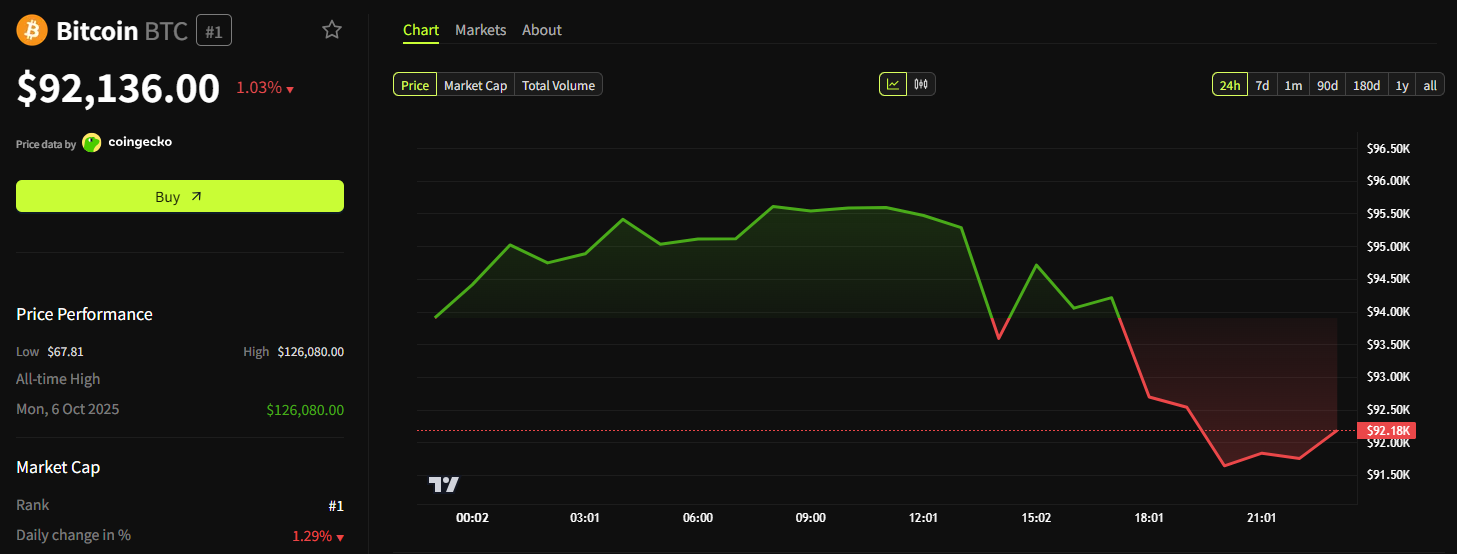Bitcoin Latest Updates: Institutional Trust Fuels the Synergy Between Bitcoin and Tech Stocks
- Institutional investors like Harvard and Wall Street giants increasingly link Bitcoin and tech stocks, boosting both asset classes through diversified portfolios. - Harvard tripled its BlackRock Bitcoin ETF stake while expanding tech holdings, reflecting growing institutional confidence in crypto and growth equities. - Bitcoin ETFs face volatility amid market jitters, yet top investors remain bullish on tech and AI-driven innovation's long-term returns. - Macroeconomic factors like Trump's affordability
Throughout 2022, Bitcoin’s price action has become more closely linked to U.S. technology stocks, as institutional investors and evolving market forces bring the two asset classes together. This connection has grown stronger due to rising interest in digital currencies and the significant influence of tech giants in the global economy, with major institutions like Harvard University and leading Wall Street firms expressing optimism about both markets.
The relationship between

Macroeconomic trends further reinforce the growing connection between Bitcoin and technology stocks. A recent White House dinner hosted by President Donald Trump with Wall Street leaders
Changes in market structure are also influential. Nasdaq and Cboe are advocating for 24-hour trading in the U.S.,
Nevertheless, this relationship carries certain risks. Bitcoin’s price swings remain a concern, with Duke University’s Campbell Harvey
At present, the connection between Bitcoin and technology stocks seems well established. The investment strategies of Harvard and the evolving approaches on Wall Street illustrate how the boundaries between digital assets and traditional growth stocks are becoming less distinct, driven by institutional trust, regulatory changes, and a shared focus on innovation. Whether this correlation will persist depends on broader economic stability and how both sectors manage regulatory and market challenges.
Disclaimer: The content of this article solely reflects the author's opinion and does not represent the platform in any capacity. This article is not intended to serve as a reference for making investment decisions.
You may also like
Cardano Pushes RealFi to the World: Hoskinson Says It Will Change Finance Forever
Quick Take Summary is AI generated, newsroom reviewed. RealFi connects blockchain to real-world finance and targets the unbanked in Africa and beyond. Atala PRISM gives users digital identity and verifiable credit without banks. Cardano already tested RealFi tools in Kenya, Ethiopia, and Tanzania with 2% loan default rates. All microloan returns convert into ADA, creating constant buy demand for the token.References X Post Reference
Vitalik Buterin's Latest Advances in ZK Technology and Their Impact on the Crypto Ecosystem
- Vitalik Buterin's ZK advancements resolve Ethereum's scalability-privacy trilemma, enabling 43,000 TPS with near-zero fees via GKR protocol. - Kohaku framework introduces modular privacy tools like Railgun, making confidential transactions default for Ethereum wallets. - ZK rollups (zkSync, StarkNet) now hold $3.5B TVL, driven by institutional adoption for RWA tokenization and confidential settlements. - Regulatory clarity and Ethereum's zkEVM integration position ZK as core infrastructure, with 70% lowe

ZK Atlas Enhancement: Driving Blockchain Expansion and Enterprise Integration
- ZK Atlas Upgrade (2025) boosts blockchain scalability with 30,000 TPS and 70% lower gas costs via Airbender proof system. - Modular ZKsync OS reduces Ethereum fees by 90%, enabling $3.5B TVL growth in ZK rollups for DeFi and RWA tokenization. - U.S. GENIUS Act and EU MiCA regulation legitimize ZK privacy tech, attracting $15B in Bitcoin ETF investments for institutional adoption. - Despite regulatory scrutiny and interoperability challenges, ZK Atlas positions as foundational infrastructure for high-thro

Crypto Bloodbath: Bitcoin Loses $92K: Ethereum Slips $3K — Worst Drop in Months
